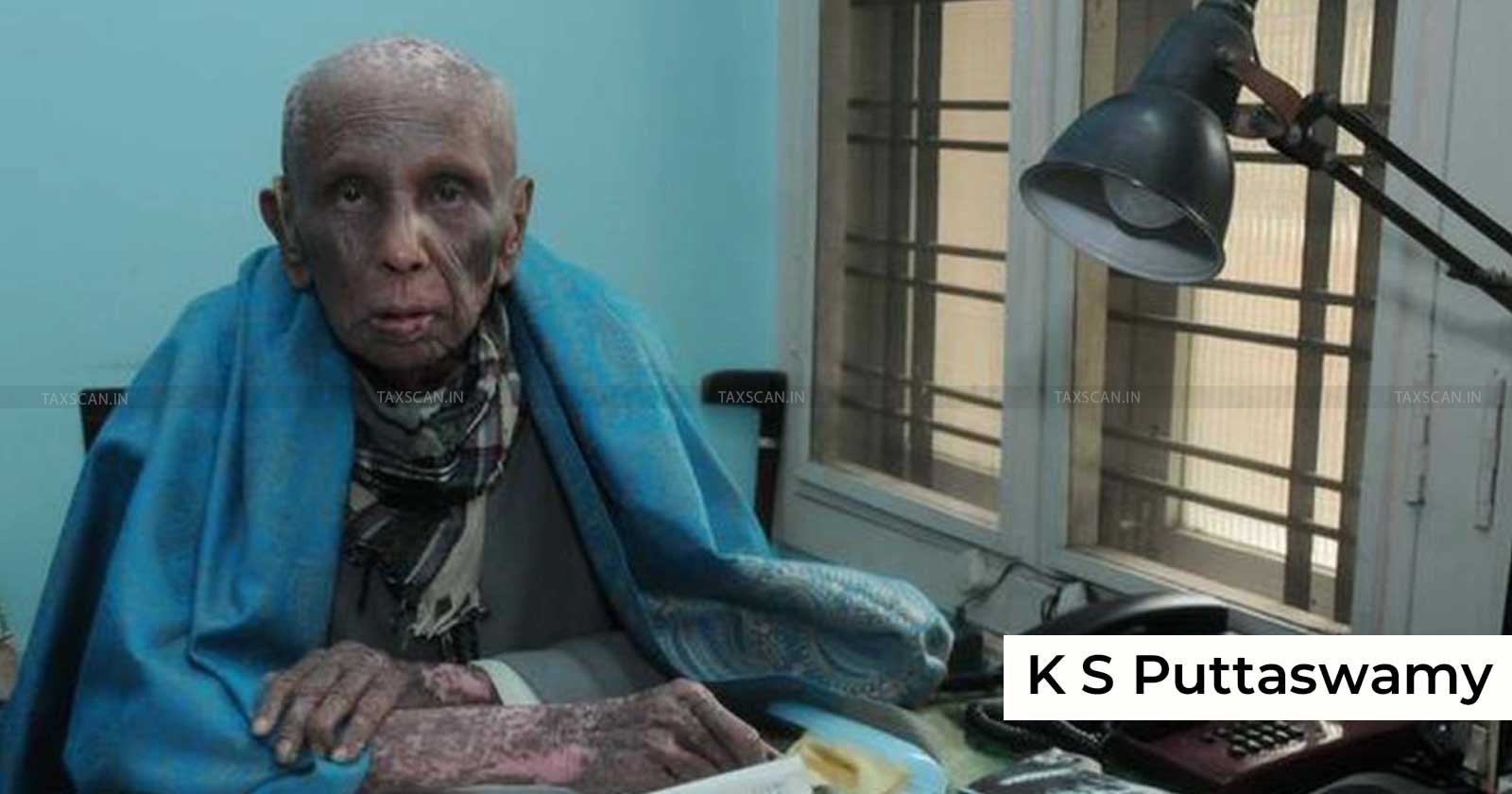Justice K S Puttaswamy Passes Away: A Glance at His Landmark Tax Judgments
Justice K S Puttaswamy Passes Away

Justice K S Puttaswamy – K S Puttaswamy – Justice K S Puttaswamy Passes Away – Taxscan
Justice K S Puttaswamy – K S Puttaswamy – Justice K S Puttaswamy Passes Away – Taxscan
The legal fraternity mourns the passing of Justice K S Puttaswamy, a distinguished jurist renowned for his profound contributions to Indian law. His insightful judgments have left an indelible mark on the interpretation of tax statutes, shaping the legal landscape for decades to come.
Justice K. S. Puttaswamy was an Indian judge of the Karnataka High Court who was also the original petitioner, challenging the Government of India over making Aadhaar mandatory.
His tenure on the bench was marked by several landmark rulings that clarified complex aspects of tax legislation. We revisit some of his most significant judgments that continue to influence tax jurisprudence.
Income-Tax Act, 1961
B.S. Jayachandra vs. Income-Tax Officer And Anr. (March 24, 1986)
In this pivotal case, the petitioner challenged Section 2(14)(iii) of the Income-Tax Act, 1961, arguing that income arising from the sale of agricultural land falls exclusively under the state's legislative competence, not the central government. The contention was that such income should be exempt from capital gains tax as it pertains to agricultural land, a subject under the State List of the Constitution.
His initiative in filing the petition underscored his commitment to upholding constitutional rights and civil liberties, impacting millions of citizens and setting a precedent in privacy law.
Become a PF & ESIC expert with our comprehensive course - Enroll Now
Justice Puttaswamy rejected the petitioner's argument, observing no distinction between "agricultural lands in India" as defined in Section 2(14) and lands used for agricultural purposes. He clarified that income from the sale of such lands constitutes capital gains and is taxable under the Act. He opined that the Union Parliament has the competence to define "agricultural income," "agricultural land," and "capital asset," thereby bringing capital gains from agricultural lands within municipal limits and specified areas into the tax net. This judgement affirmed the central government's authority to tax capital gains from certain agricultural lands, providing clarity on the legislative scope.
Central Excise and Salt Act, 1944
Alembic Glass Industries Ltd. vs. Assistant Collector of Central Excise
In this case, Alembic Glass Industries Ltd. contested a show cause notice issued by the Assistant Collector of Central Excise, which proposed including the cost of cartons or packing materials—supplied by buyers—in the assessable value of excisable goods manufactured by the company.
Despite procedural objections from the respondents, Justice Puttaswamy proceeded to examine the merits due to the prolonged nature of the case. He concluded that since the packing materials were supplied by the buyers and not manufactured or purchased by the company, their cost should not be included in the assessable value of the goods. He quashed the show cause notice, setting a precedent that clarified the treatment of buyer-supplied packing materials in excise valuation.
Central Sales Tax Act, 1956
M/s. Mac Charles Brothers (Private) Limited vs. Commercial Tax Officer
M/s. Mac Charles Brothers, constructing a five-star hotel in Bangalore, applied for registration under the Central Sales Tax Act to include various goods necessary for construction and operation. The Commercial Tax Officer ( CTO ) partially rejected the application, excluding several items from registration.
His initiative in filing the petition underscored his commitment to upholding constitutional rights and civil liberties, impacting millions of citizens and setting a precedent in privacy law.
Become a PF & ESIC expert with our comprehensive course - Enroll Now
Upon reviewing the CTO's decision, Justice Puttaswamy found that the excluded items were integrally connected to the ultimate production of goods and services offered by the hotel. He quashed the CTO's order except for "building materials and stones," directing the inclusion of all other items in the registration certificate. This judgement provided clarity on what constitutes goods for resale or use in manufacturing under the Act, aiding businesses in understanding their tax obligations.
Sidenote: The Aadhaar UID Case
Beyond his judicial tenure, Justice K S Puttaswamy played a pivotal role in one of India's most significant constitutional cases concerning privacy and the Aadhaar program. After his retirement, he was the principal petitioner in the landmark case of Justice K.S. Puttaswamy (Retd.) vs. Union of India, challenging the constitutionality of the Aadhaar scheme introduced by the government.
The Supreme Court, in a historic judgement in 2017, declared the right to privacy as a fundamental right under the Constitution. This was a result of Justice Puttaswamy's petition questioning the mandatory requirement of Aadhaar for accessing government services.
In 2018, the Supreme Court upheld the constitutional validity of the Aadhaar scheme but imposed restrictions on its usage. The court ruled that while Aadhaar could be used for welfare schemes and PAN linking, it could not be mandated for services like bank accounts and mobile connections.
His initiative in filing the petition underscored his commitment to upholding constitutional rights and civil liberties, impacting millions of citizens and setting a precedent in privacy law.
Become a PF & ESIC expert with our comprehensive course - Enroll Now
Justice K S Puttaswamy's contributions have significantly impacted the interpretation and application of Indian law. His analytical approach and clarity in legal reasoning have provided valuable guidance to taxpayers, practitioners, and the judiciary.
His role in the Aadhaar case, in particular, showcased his dedication to protecting individual rights even after his tenure on the bench.
As we remember his contributions, his work continues to serve as a cornerstone for legal jurisprudence and will inspire future generations of legal minds.
Support our journalism by subscribing to Taxscan premium. Follow us on Telegram for quick updates


